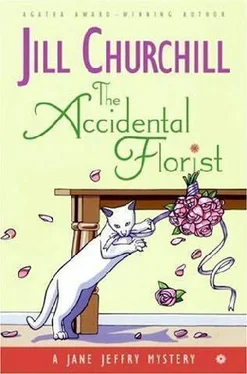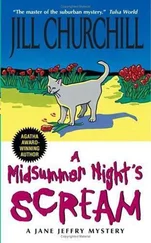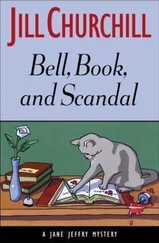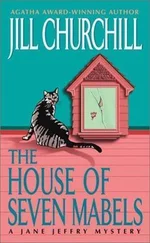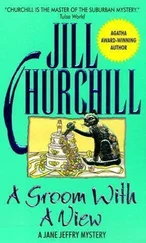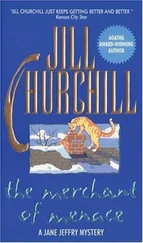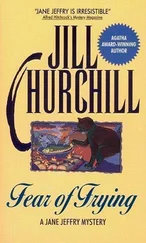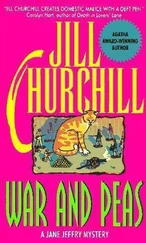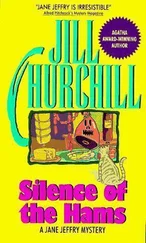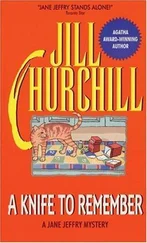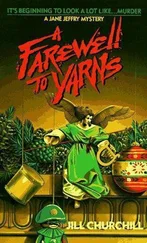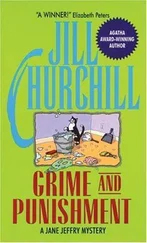She faxed the notice to three newspapers, one of which was a county paper, with local school district schedules, sports events, local crimes of note, town picnics, and scholarships. The other newspapers were full of ads for jobs, notices of new local restrictions, lost pets, a list of local births, marriages, divorces, and funerals.
Jane called Mel and said, "It's Saturday and I've been to the grocery store. Please come for dinner. I'll have tons of summer food."
She didn't tell him about Thelma yet. It wasn't something to announce over the phone.
"How's my office coming along?"
"Swell. But it won't be ready for you until after the weddings, since the dates have been changed."
"I want to see it anyway. I'm starving. Can we eat at five?"
"Of course."
She prepared a big salad with pomegranate juice. The recipe called for one cup of juice, one cup of balsamic vinegar, a half teaspoon of olive oil, and one small egg yolk to emulsify it. Shake thoroughly, the recipe said. She took a taste when it was done and almost gasped at how good it was.
She also made deviled eggs, thin shaved ham, and brown mustard on egg rolls. She covered them with plastic wrap and would warm them up later. She invited
Shelley and Paul to come to dinner, but Paul was out of town on business. "Can my kids come along?"
"The more the merrier,"Jane said. "I just bought more food than Todd and I can eat before it spoils. By the way, Thelma died in the nursing home today. I didn't want to tell you in front of the children. But I need to tell Todd as soon as he comes home from his summer class."
"Will he be upset?" Shelley asked.
"Probably not. I'll tell you why if you want to come over for a glass of raspberry-flavored iced tea."
Shelley agreed with Jane and Ted that Thelma had fought to the end. "She wasn't a nice woman. Do you suppose she ever was?"
"Well, she raised one good son. And another who wasn't."
On Wednesday, Jane insisted on driving Ted to the cemetery. "If I drive, I can rescue you from the church ladies. How did the company memorial service go yesterday?"
"Very well. My mother had written out a will about twelve years ago, at my insistence. She gave a gift of five hundred dollars to each manager of the pharmacies. Of course there were only four of them at that time, and now there are twelve. So everybody was happy."
"Would you be comfortable telling me about the rest of the bequests?" Jane asked.
"Of course. Since it's not a trust, it's not private. She gave the church a thousand dollars, and her third share
of the profits to me. Since she never expected us to adopt children, there was no per stirpes mentioned. So our girls will inherit my share."
"Ted, I'm so relieved to hear that. Especially since she had wills in mind and tried to forge an amendment to Steve's. And it's much, much better that your lovely little girls will have a good financial future someday."
When they drove into the driveway to the cemetery, it was almost blocked with cars. The members of the church Thelma belonged to had turned out in droves. That would have pleased Thelma. As Jane pulled into the remaining parking area, she realized they'd been followed through the gates by the black cars of the funeral establishment.
She'd always thought the procession of these cars was touching and dignified. She and Ted walked over to the grave site that Ted's father Elmer had bought decades ago for the whole family. There were rows of chairs set up around a deep grave that was covered with a white cloth.
She noticed that the other people were almost entirely elderly women. Many of them as hard-faced and tough as Thelma. There was a scattered group of old men, mostly with walkers or in wheelchairs. There were also a few very short, tiny old women with dowager humps. They hadn't had access to drugs that kept their spines from collapsing.
The service was relatively short. Many cloth handkerchiefs were raised to the ladies' faces. There were a huge number of floral tributes set around the sides of the grave. When the coffin was lowered, Jane glanced at Ted. Hisface showed no emotion whatsoever. He clearly wasn't grief stricken, but not showing what was probably a sense of relief either.
After the service, some of the stronger ladies took along a few of the floral tributes saying they'd look so good at the church. Most of them approached Ted, expressing their sympathy, which he accepted with grace. The last two to speak to him were two of the tougher women, one of whom said, "We're going back to church for a meal made for the mourners. You will be attending, won't you, Mr. Jeffry?"
"I'm afraid I can't. I'm meeting with our attorney this afternoon to sort out the donations my mother specified. There is one for the church, I'm glad to say."
"How nice of your mother. When will we know how much?"
"Soon," Ted said.
Another of the tiny ladies then came and took Ted's hand in both of hers, smiling. Jane thought she must have probably been the prettiest girl in school. And in spite of her wrinkles and abundant white hair, she still looked very good.
She said, "I was hoping to see your wife and your darling babies here."
"She couldn't find a babysitter for the girls," Ted said.
"Oh, dear. We should have thought of providing one for you." She turned to Jane and said, "I remember you, Ms. Jeffry. I've missed seeing you and your children at church."
"Two of them go to school and have summer jobs in other states," Jane said, shaking her hand. "I remember you, too, Mrs. Jefferson. You were their Sunday school teacher and they adored you. So did I."
"How sweet of you. I hope we'll meet again. And my deepest sympathies to you, Mr. Jeffry. Your mother must have been a handful to work with."
He smiled. "She certainly was."
"I must go," Mrs. Jefferson said. "I'm supposed to supply the lemonade and it's probably getting hot in my car. Best wishes to both of you."
The moment she turned away, he took Jane by the elbow, thanked the pastor, and swiftly headed toward Jane's car.
"Well done, Ted. You didn't need my help after all."
"I knew you would if it was necessary though. That's what counts."
"Will you and Dixie and the girls come to dinner with us tonight? I have lots of food."
"That would be wonderful. I'll have to check with Dixie, but I'm sure she'll agree."
"Mrs. Jefferson is one of the good ones from the church."
"One of the few," Ted said with a smile as he got into Jane's car.
Chapter
TWENTY-ONE
D
ixie looked five years younger than the last time Jane had seen her, and she was smiling and making the little girls laugh when she made funny faces. Ted looked happier and more relaxed than ever now that Thelma's funeral was over. It was a lovely evening and everyone ate heartily. After dinner she showed them around Mel's new office, which was finally looking like it might turn out to be done in a couple of weeks. Then he could choose the carpet and paint colors, and move his office furniture in.
Ted said, "This makes me think it's time to renovate my own office at work. It hasn't changed for years and everything looks old and dingy."
"Oh, Ted," Dixie said, "that's a wonderful idea. Can I help you pick out new furniture and paint colors?"
"You'll have to. I have no idea how to do this," he said. "Anything that isn't dark brown. And I have to clean out my mother's house to sell it. Do either of you want anything from it? A favorite lamp or some of her jewelry?"
Dixie looked at him and said, "I wouldn't want anything she'd ever touched."
Jane chimed in. "There's nothing I want either."
"So what do I do with her jewelry? She has a lot of it, and some is valuable. Her wedding ring has a huge diamond—"
Jane stepped up to the bat before Dixie could speak. "Take them to an appraiser, and find out what they're worth. Then sell them on eBay or a local jeweler."
Читать дальше
